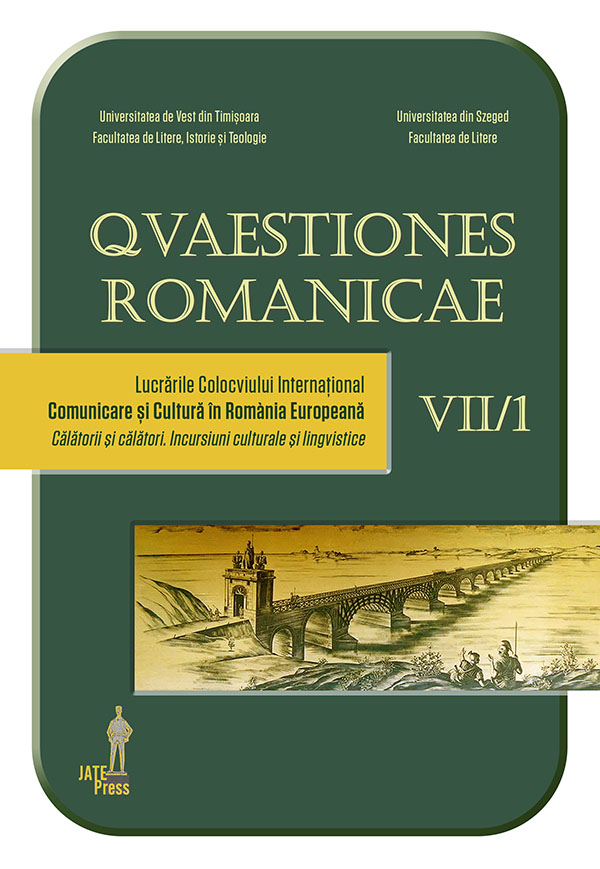Voyage aux enfers dans l’œuvre de Sylvie Germain
Abstract: In our work we intend to study two novels by Sylvie Germain, Chanson des mal-aimants (2002) and Magnus (2005), relying on the analogy with two myths of the descent into hell, the myth of Orpheus and the myth of Christ. The stories of the two protagonists are similar, being orphans, the emotional deficiencies push them to descend into the hell of the heart to seek their mother-Eurydice. Their picaresque journey is a reaction to the pain caused by the lack of family ties. The journey becomes a true quest for identity since they go down to the bottom of Hell to rise to the surface and reconcile with oneself and with God. We will base our approach on the principles of mythocritics proposed by Pierre Brunel concerning the analogy between the structure of the text and the structure of the myth, as well as on the two semantic orientations of the myth of Orpheus set out by Gilbert Durand, the initiatory mystery and the music. First, we will observe the determinism of the journey as a response to pain, and then we will analyze the echoes of the myth of Orpheus and the myth of Christ in the two novels mentioned. Finally, we will study the end of the initiatory quest as an anabasis marked by a spiritual revelation within nature.
Keywords: journey, myth, initiatory journey, katabasis, anabasis.
Résumé : Dans notre travail, nous analyserons deux romans de Sylvie Germain, Chanson des mal-aimants (2002) et Magnus (2005) en nous appuyant sur l’analogie avec deux mythes de la descente aux enfers, le mythe orphique et le mythe christique. Les histoires de deux protagonistes sont semblables, étant des enfants orphelins, les carences affectives les poussent à descendre dans l’enfer du cœur pour chercher leur mère-Eurydice. Leur trajet picaresque est une réaction à la douleur provoquée par le manque de lien familial. Le voyage devient une véritable quête identitaire, puisqu’ils descendent jusqu’au fond de l’Enfer pour remonter à la surface et se réconcilier avec soi-même et avec Dieu. Nous fonderons notre démarche sur les principes de la mythocritique proposés par Pierre Brunel concernant l’analogie entre la structure du texte et la structure du mythe, ainsi que sur les deux orientations sémantiques du mythe d’Orphée énoncées par Gilbert Durand, le mystère initiatique et la musique. D’abord, nous observerons le déterminisme du voyage aux enfers en tant que réponse à la douleur ensuite, nous analyserons les échos du mythe d’Orphée et du mythe christique dans les deux romans cités. Enfin, nous étudierons la fin de la quête identitaire vue comme une anabase, marquée par une révélation spirituelle au sein de la nature.
Mots-clés : voyage, mythe, trajet initiatique, catabase, anabase.
